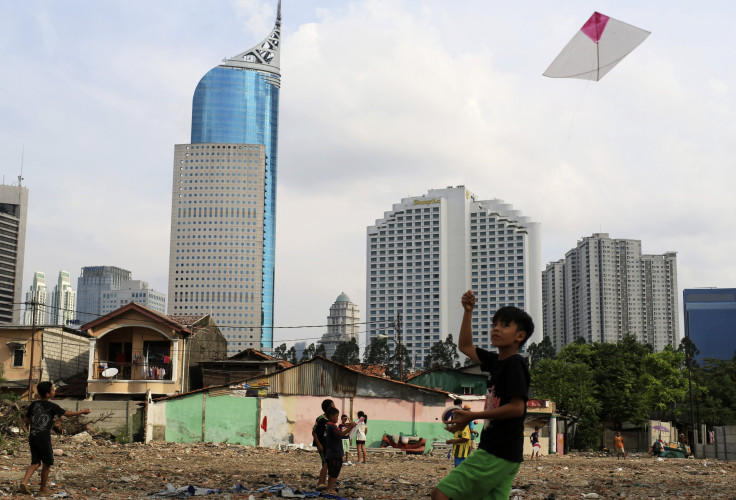Indonesia Misses GDP Target For 2015; Deficit Hits 25-Year High

Indonesia’s Finance Ministry announced that the country missed its economic growth target in 2015 because of a global slowdown, media reports said Sunday. The Ministry also reportedly recorded its largest budget deficit in 25 years due to lower tax collections and falling commodity prices.
Indonesia’s gross domestic product increased 4.73 percent in 2015, missing the 5.7 percent target set in the state budget, Bloomberg reported Sunday. President Joko Widodo announced several steps in 2015 to boost the economy, including seven stimulus packages since September to increase spending and encourage expansion.
Despite the measures, Indonesia’s budget deficit -- the difference between expenditure and revenue -- widened to 2.8 percent of the GDP from a targeted 1.9 percent in 2015. The government spent 1,810 trillion rupiah ($130.9 billion) from the state budget last year, while revenue was 1,491.5 trillion rupiah ($107.8 billion).
A widening budget deficit could be cause of concern for Widodo as a 2003 law makes it illegal for the budget deficit to exceed 3 percent and leaves the president vulnerable to impeachment. With lower commodity prices, and resources revenue tumbling, the 2015 deficit is the largest seen by the Southeast Asian country in 25 years.
In 2014, Indonesia recorded a budget deficit of 2.25 percent of the GDP.
"If the law is broken, we can impeach the government," Fadel Muhammad, a member from opposition party Golkar who heads parliament's finance commission told Reuters. "We suggest [the government] does not let it happen."
Revenue earned from taxes was 1,235.8 trillion rupiah ($89.3 billion) last year, or reportedly 83 percent of the amount the government was aiming for, as mining and processing industries suffered a subdued year due to falling commodity prices.
Meanwhile, inflation was 3.1 percent in 2015, lower than the 5 percent goal as the ministry had earlier hoped for. On average the country’s crude oil fetched about $50 per barrel, below the $60 target, the ministry said.
© Copyright IBTimes 2025. All rights reserved.





















